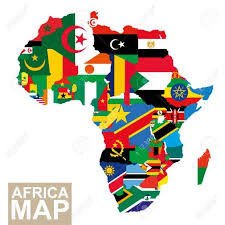What role does youth play in the socio-economic development of African countries?
By Ugo Ikeji
Youth play a crucial role in the socio-economic development of African countries due to their potential to drive innovation, productivity, and social change.
Here are some key points highlighting their importance:
1. Demographic Dividend
Population Growth: Africa has the youngest population in the world, with over 60% of its population under the age of 25.
Potential Workforce: This demographic trend offers a significant potential workforce, which can be harnessed to drive economic growth.
2. Innovation and Entrepreneurship
Start-ups and SMEs: Young people are often at the forefront of entrepreneurial ventures, establishing start-ups and small-to-medium enterprises (SMEs) that create jobs and stimulate economic activity.
Technological Advancement: The youth are generally more adaptable to new technologies and can spearhead the digital transformation of African economies.
3. Education and Skills Development
Human Capital: Investing in the education and skills development of young people enhances human capital, which is essential for economic development.
Innovation in Education: Young people can also contribute to innovative approaches in education, utilizing digital tools to enhance learning and accessibility.
4. Social and Political Engagement
Advocacy and Activism: Youth activism can lead to social and political reforms that promote good governance, transparency, and accountability.
Policy Influence: Engaging youth in policy-making ensures that their needs and perspectives are incorporated, leading to more inclusive and effective policies.
5. Health and Well-being
Improving Health Outcomes: Healthy youth populations contribute to a productive workforce. Addressing health issues such as HIV/AIDS, malaria, and maternal health is crucial.
Sports and Recreation: Promoting sports and recreational activities can improve physical and mental health, fostering a sense of community and social cohesion.
6. Cultural and Creative Industries
Cultural Expression: Youth drive cultural industries such as music, film, and fashion, which not only preserve and promote cultural heritage but also generate economic value.
Creative Economy: The creative economy offers significant opportunities for employment and income generation.
7. Challenges and Solutions
Unemployment: High youth unemployment rates are a major challenge. Solutions include vocational training, apprenticeships, and promoting entrepreneurship.
Migration: Addressing the root causes of youth migration, such as lack of opportunities, is essential to retain talent within the continent.
8. Sustainable Development
Environmental Stewardship: Youth are increasingly involved in environmental activism, promoting sustainable practices and addressing climate change.
Rural Development: Engaging young people in agricultural and rural development can revitalize these areas and reduce urban migration pressures.
Conclusion
Harnessing the potential of Africa's youth is key to achieving sustainable socio-economic development. This requires strategic investments in education, health, entrepreneurship, and governance, as well as creating an enabling environment that empowers young people to contribute meaningfully to their societies.
IMPORTANT-
Investing in youth is not just about addressing their needs today but also about ensuring a prosperous and stable future for African countries.
By Ugo Ikeji
Youth play a crucial role in the socio-economic development of African countries due to their potential to drive innovation, productivity, and social change.
Here are some key points highlighting their importance:
1. Demographic Dividend
Population Growth: Africa has the youngest population in the world, with over 60% of its population under the age of 25.
Potential Workforce: This demographic trend offers a significant potential workforce, which can be harnessed to drive economic growth.
2. Innovation and Entrepreneurship
Start-ups and SMEs: Young people are often at the forefront of entrepreneurial ventures, establishing start-ups and small-to-medium enterprises (SMEs) that create jobs and stimulate economic activity.
Technological Advancement: The youth are generally more adaptable to new technologies and can spearhead the digital transformation of African economies.
3. Education and Skills Development
Human Capital: Investing in the education and skills development of young people enhances human capital, which is essential for economic development.
Innovation in Education: Young people can also contribute to innovative approaches in education, utilizing digital tools to enhance learning and accessibility.
4. Social and Political Engagement
Advocacy and Activism: Youth activism can lead to social and political reforms that promote good governance, transparency, and accountability.
Policy Influence: Engaging youth in policy-making ensures that their needs and perspectives are incorporated, leading to more inclusive and effective policies.
5. Health and Well-being
Improving Health Outcomes: Healthy youth populations contribute to a productive workforce. Addressing health issues such as HIV/AIDS, malaria, and maternal health is crucial.
Sports and Recreation: Promoting sports and recreational activities can improve physical and mental health, fostering a sense of community and social cohesion.
6. Cultural and Creative Industries
Cultural Expression: Youth drive cultural industries such as music, film, and fashion, which not only preserve and promote cultural heritage but also generate economic value.
Creative Economy: The creative economy offers significant opportunities for employment and income generation.
7. Challenges and Solutions
Unemployment: High youth unemployment rates are a major challenge. Solutions include vocational training, apprenticeships, and promoting entrepreneurship.
Migration: Addressing the root causes of youth migration, such as lack of opportunities, is essential to retain talent within the continent.
8. Sustainable Development
Environmental Stewardship: Youth are increasingly involved in environmental activism, promoting sustainable practices and addressing climate change.
Rural Development: Engaging young people in agricultural and rural development can revitalize these areas and reduce urban migration pressures.
Conclusion
Harnessing the potential of Africa's youth is key to achieving sustainable socio-economic development. This requires strategic investments in education, health, entrepreneurship, and governance, as well as creating an enabling environment that empowers young people to contribute meaningfully to their societies.
IMPORTANT-
Investing in youth is not just about addressing their needs today but also about ensuring a prosperous and stable future for African countries.
1 yr. ago

